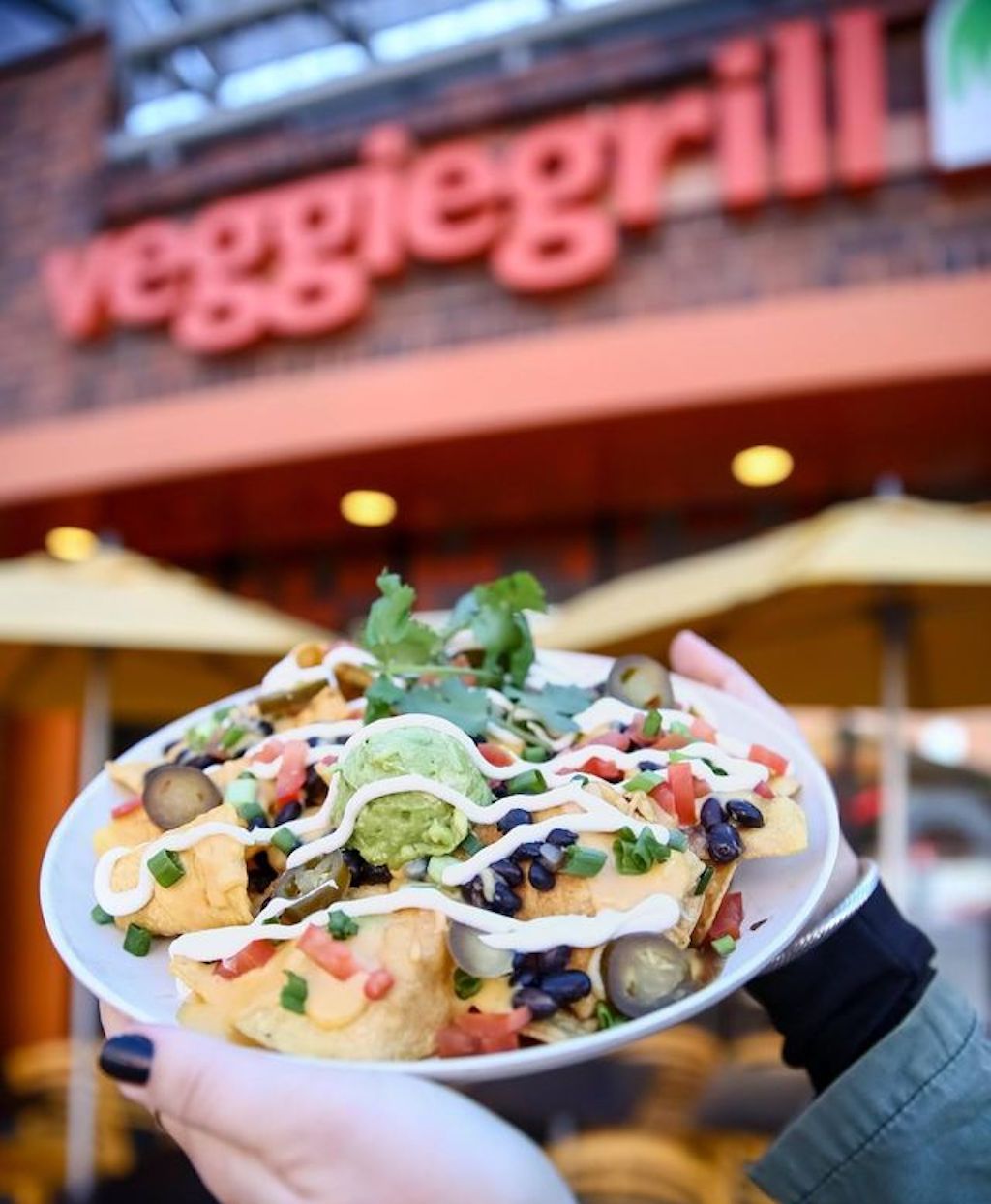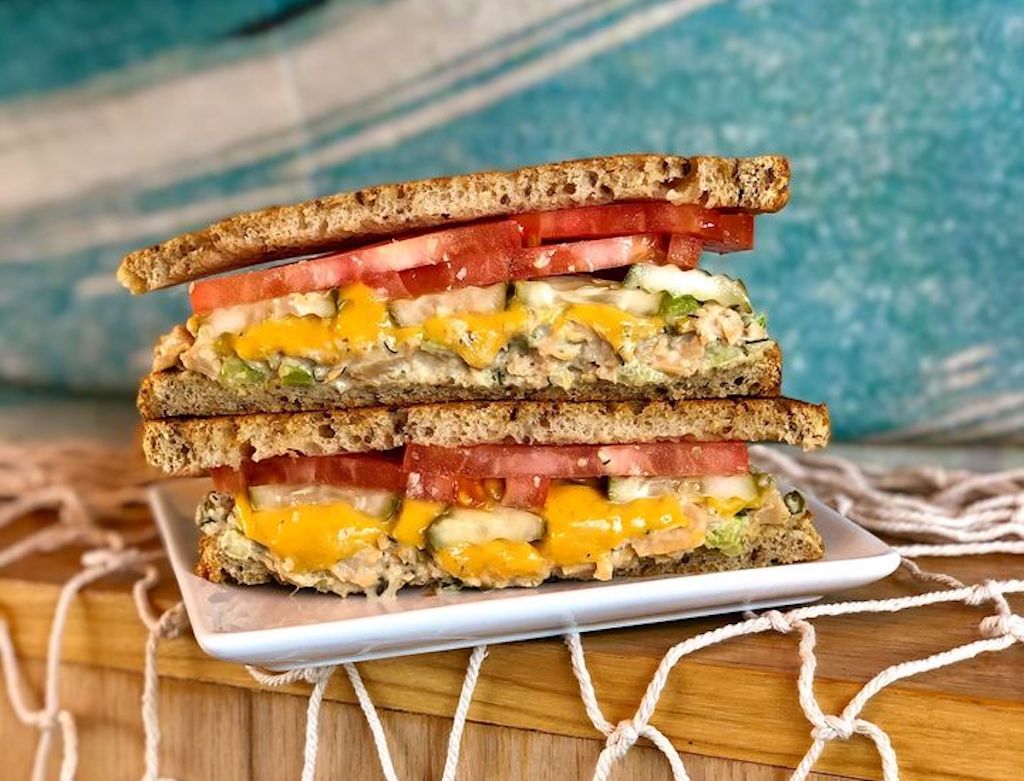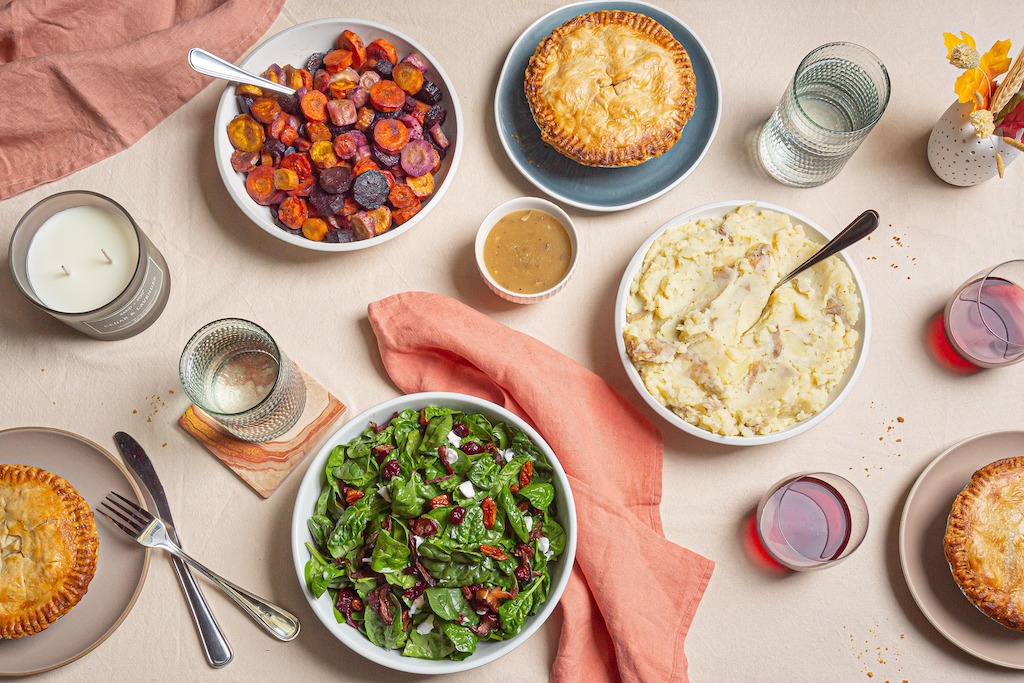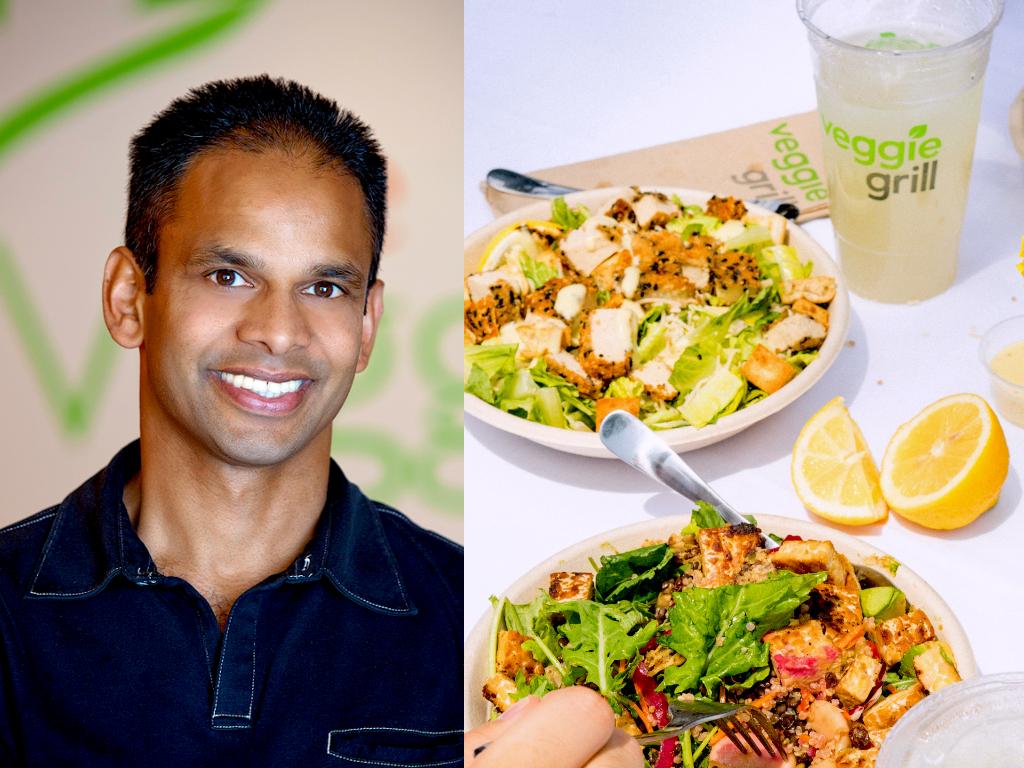10 Mins Read
In 2006, T.K. Pillan co-founded Veggie Grill as a fast-casual eatery in California serving only 100% plant-based food. Now, today is it the largest vegan restaurant chain in the United States with 37 locations across the country and bold plans to expand to over 50 outlets nationwide. Offering everything from burgers and sandwiches to tacos, salads, bowls and more, the restaurant is known to satiate even hardcore meat-lovers, Veggie Grill has been at the forefront of mainstreaming plant-based eating in the F&B scene, with more than 70% of its customers identifying as non-vegetarian.
We recently had the opportunity to sit down with Pillan, who believes that there has never been a better time to go plant-based. In this interview, the Veggie Grill co-founder shares his insights on changing consumer trends, the chain’s growth amid the pandemic and what he thinks will shape the future of food.
GQ: You started Veggie Grill with investor Kevin Boylan back in 2006. Can you tell us a bit about your story as a former MIT engineer with a tech background and why you ended up becoming a restaurateur? What the ambition was behind Veggie Grill?
TKP: Getting into the restaurant world was the last thing on my mind in the early part of my career. I was working in the systems world for about 14 years and in the e-commerce side amid the dot-com boom in the 1990s. I had started a company that developed e-commerce websites and rode the internet wave and sold a piece of the company in 1999, then selling it off completely in 2004. It gave me a bit of time to step back and think about what I wanted to do next. My mother is from India and is a nutritionist, dietitian and holistic practitioner and I always had that background, and I started to read about different issues such as prevalence of heart disease, diabetes, healthcare costs and dependence on pharmaceuticals that was starting to permeate. I knew there was a better way.
I decided to see if I could create a solution to the big problems, which started my journey and I honed into one fundamental problem – we couldn’t go out to eat and find healthy, delicious vegan food.
I decided to see if I could create a solution to the big problems, which started my journey and I honed into one fundamental problem – we couldn’t go out to eat and find healthy, delicious vegan food. I am the last thing from being a chef, but more importantly, eating out is such a big part of American culture. You have iconic restaurant chains, and none of them are delivering good-for-you or good for the planet foods. This was in 2005 and the data was just starting to come out about how you could get all the nutrients you needed from a plant-based diet, while significantly decreasing your chances of major diseases such as heart diseases and certain cancers. I also started to read more into factory farming and the destruction it leaves on our environment and the treatment of animals. I became a plant-based eater and saw tremendous results from a personal standpoint. I felt more energised, my cholesterol levels went from 200 to under 120. It was a better way to eat and naturally, I became passionate about creating a mainstream restaurant concept that brought plant-based foods to more people. Back then, there were small vegan restaurants that served a niche crowd, but my vision was to create something that would bring it to a much larger audience.

GQ: How has the attention and awareness around plant-based eating changed since you launched the chain? It’s safe to say that even two or three years ago, interest in vegan food was nowhere near what it is today. In your opinion, what do you think is the main reason behind this growth?
TKP: It has grown tremendously – from the awareness that existed back in 2006 to where we are today is a quantum shift forward. Awareness from both an environmental and health standpoint. These two things we were only just seeing the statistics and data come out back then. Luckily, it has now reached a tipping point in recent years thanks to many different vehicles, from books to documentaries. You’ve got the United Nations also coming out with reports and continuing to validate all the data coming out from various sources. The medical community is realising that the evidence is there and there is no denying the benefits of plant-based foods. I’d say two or three years ago, that’s when we got past the argument. Back in 2006, there was still a debate and now it’s more about people making decisions to change their habits.
It has grown tremendously – from the awareness that existed back in 2006 to where we are today is a quantum shift forward.
GQ: What about during the coronavirus crisis? How has the pandemic shaped consumer trends and demand for plant-based food, and is this reflected in Veggie Grill’s sales growth?
TKP: There are different data points. If you look at what’s happening in packaged food sales, you see incredible growth in the plant-based sector versus the traditional food industries. You’re seeing 200% growth in some categories, which is far higher than that of animal-based products. People are waking up to the fact they need to eat foods that are good for the environment because the future of the planet isn’t guaranteed, and for their own health and immunity too. We as a restaurant got hit hard during the initial weeks of the pandemic, but we’ve had quite a comeback over the summer and fall months. While urban locations are still a challenge because office workers have yet to come back, our suburban locations are positive year-on-year.
GQ: Can you share some of your favourite plant-based brands out there? And what are some of your top picks on Veggie Grill’s menu?
TKP: We’ve got a lot of great partners we work with, Beyond Meat is obviously one that is very well-known. We recently also rolled out plant-based tuna from Good Catch Foods to create a vegan tuna melt, which has gotten a great response. Unreal Deli is another brand we’ve just added to our menu too. Many of the early pioneers of the plant-based world, such as Follow Your Heart, Gardein and Daiya, those are some of the long-term partners at Veggie Grill. Personally, I am a fan of all brands – anyone who makes it easier to eat plant-based, I’m a big fan of.

GQ: You’re also a partner and co-founder of PowerPlant Ventures, a growth equity fund investing in plant-centric brands. Can you tell us a bit more what your mission with it is?
TKP: PowerPlant Ventures is an investment fund focused on emerging plant-based brands and our mission is to provide growth capital to scale from their early initial traction to a much larger point where they can grow their distribution, management teams and what they need to do to create a company that brings plant based foods to a mainstream audience. There are a lot of steps along the way to understand how to build your team and strategy, along with having the capital to do it. So we’ve invested in some great early stage brands such as Beanfields, Ripple, Hail Merry, Apeel Sciences, and many of the leading brands like Beyond Meat and Eat Just. We’re here to help support passionate entrepreneurs and build their companies to create a better future.
We’re at a point where almost 50% of people now want to eat more plant based foods. If we continue this progress over the next 15 years, I do have confidence that while perhaps not everyone is going to be plant-based, the majority of people are going to be primarily eating a plant-centric diet.
GQ: I want to go back and talk about the plant-based movement. It’s true the movement is at an all-time high, but statistically, when we look at market share, we’re still just chipping away at big meat and dairy. Would you say we’re already on the right track to mainstreaming plant-based diets, and if so, when do you think we will get there?
TKP: Yes, I think we’re certainly on the right track and we will get there. But to your point, there is a lot of work to do. There are lots of habits and traditions that need to be changed, with the help and support of new products and the awareness to motivate this change. But if you look at how far we’ve come in the last 15 years since I’ve fully been involved in the movement, it’s been quite a shift. We’re at a point where almost 50% of people now want to eat more plant based foods. If we continue this progress over the next 15 years, I do have confidence that while perhaps not everyone is going to be plant-based, the majority of people are going to be primarily eating a plant-centric diet due to health and the environment, and greater convenience of plant-based eating over time. It’s like other changes we’ve made as a society. Take smoking, for instance, where it has declined based on what we learn about the impacts of products. We’re on our way, but we need to continue to accelerate it because of climate change and there is a ticking clock that we need to reverse sooner rather than later. That certainly motivates me from an entrepreneurial standpoint, and business-focused standpoint to speed up the movement. I’m hopeful for the future, but of course still worried about how fast we’re going.
We’re on our way, but we need to continue to accelerate it because of climate change and there is a ticking clock that we need to reverse sooner rather than later.

GQ: Plant-based meat alternatives, in particular, have definitely grown significantly in terms of sales, the number of choices and brands out there. What do you think are the main gaps in the market that consumers are still looking for?
TKP: Good question – the burger segment has quite a few options now, which is great, and it is still incrementally getting better. With chicken products, I know that there are going to be many new products in the category to bring these substitutes to another level. There are some areas where we’re not there but we’re seeing innovation, like bacon and pork. You pointed out earlier, there is no shortage of opportunities, but I think plant-based milk and burgers are the most worked-on so far. The seafood side, such as fish and shrimp is starting to come in alongside pork, chicken, bacon and deli meats, where I think there is a great opportunity for businesses with many consumers now looking for more options.
GQ: Some argue that the shift to a more sustainable food system will require the development and commercialisation of cell-based meat. What is your take on this?
TKP: I think it certainly has a lot of promise and that’s why we’re seeing investment activity there. It will play a role. We know that plant-based is already playing a role and is on the market and being adopted more and more everyday, but we’re just not there yet with cell-based products. Hopefully, the technology and innovation will improve and then solve some of the problems that the plant-based companies can’t solve – though plant-based companies are solving a lot of problems already, from burgers to chicken and dairy. So as cell-based matures and gets viable from a cost perspective they can solve some of the other nuanced textures and nutritional profiles, maybe it’s salmon or bacon. But ultimately we know that plant-based is here and now and already creating a viable alternative.
GQ: Going back to Veggie Grill, where do you want to take it and are there any plans to launch in international markets?
TKP: Absolutely. Our mission is to help people embrace plant-based food and do it across multiple formats, brands and geographies. We’ve got a core competency of taking meat alternatives and preparing them in the best forms and putting them in front of consumers in a really familiar, appealing and appetising way. We’re going to continue that across the country and continue to permeate the U.S. with the Veggie Grill brand, but we also have other concepts in different categories outside of Veggie Grill that we’ll be launching next year. There are a lot of categories within the restaurant world that serve different audiences in the country, so we’re working different plant-based restaurant formats to serve more people. Part of the work behind will be to create concepts that are easily franchisable and licensed and we can partner with companies in Hong Kong and around the world to bring plant-based experiences to new markets.
GQ: Finally, we always ask – are you on team rice or team noodles?
TKP: It’s team rice, of course!
All images courtesy of Veggie Grill / T.K. Pillan.




